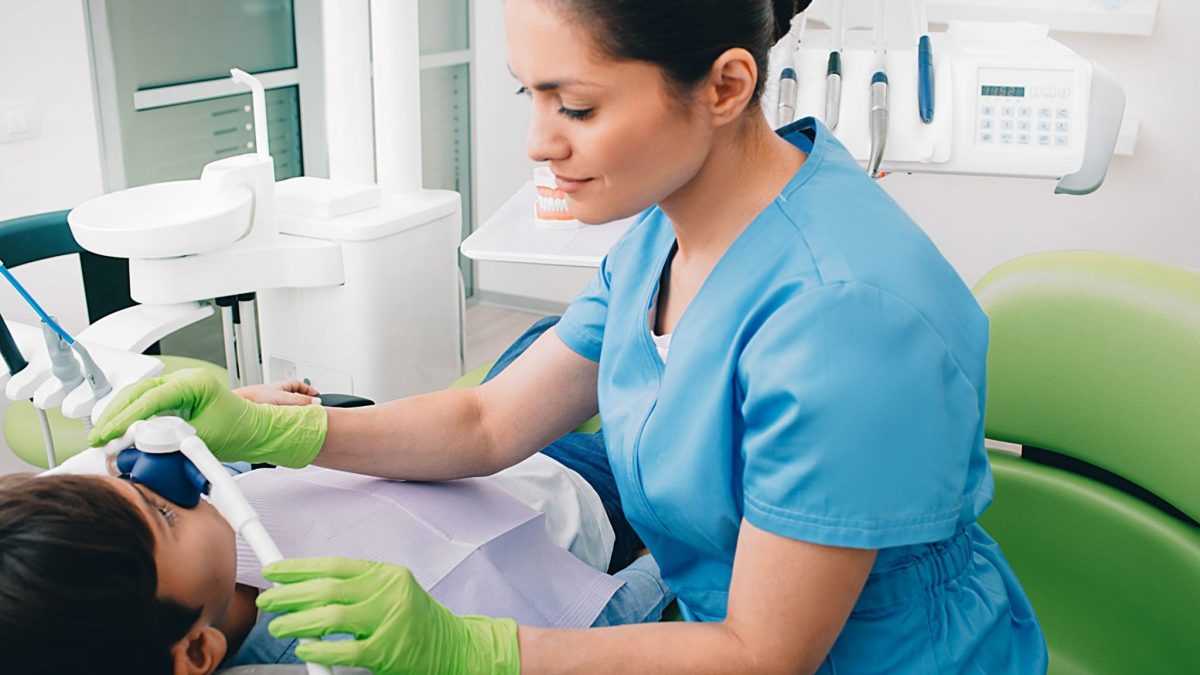Are you deciding on getting an oral procedure done at the dentist but have a substantial amount of anxiety about what may occur? If this sounds like you, you may want to talk to your dentist about Dental sedation can make the process of going to the dentist’s office comfortable and anxiety-free.
Essentially, dental sedation is ideal for patients that may have a fear of the dentist (including the associated sounds and smells), for those that have sensitive teeth, an overreactive gag reflex or have a complex dental issue that may require an extensive period of time. Before undergoing a procedure at the dentist’s office, here are a few questions that you should have answered about dental sedation.
1) Is Dental Sedation Right for Me?
During your consultation, we will help you review your available options for dental sedation. This should take into account your age, health, the cause of your anxiety (i.e. childhood fears, past trauma), what particularly worries you about the procedure, physical discomforts, potential drug interactions and anything else that you may have in mind.
Dental sedation is often used to help patients relax and feel comfortable during dental procedures. It can be particularly helpful for those who experience anxiety or fear of dental procedures, or those who have difficulty sitting still for long periods of time.
There are different types of dental sedation, ranging from mild to deep sedation. The type of sedation that is right for you will depend on various factors, such as your overall health, the type of procedure you need, and your level of anxiety.
It’s important to discuss your concerns and medical history with your dentist or dental professional, who can help you determine whether dental sedation is a safe and appropriate option for you. They will also discuss the risks and benefits associated with the type of sedation recommended for your case.
In general, dental sedation is safe for most people when administered by a trained and experienced dental professional. However, there are some risks associated with dental sedation, such as breathing difficulties, allergic reactions, and other complications. Your dentist or dental professional will take steps to minimize these risks and monitor your condition throughout the procedure.
In summary, if you are experiencing anxiety or fear of dental procedures, or have difficulty sitting still for long periods of time, dental sedation may be a suitable option for you. However, it’s important to discuss your concerns and medical history with your dentist or dental professional to determine the type of sedation that is safe and appropriate for you.
We understand the importance of professional dental care while being sensitive to your concerns. We will carefully explain how dental sedation can help you overcome these problems.
2) Which Type of Dental Sedation is Right for Me?
You should know that there is not just one catch-all type of dental sedation for every client. Asking your dentist/oral surgeon about which type of dental sedation they use can help you decide. For instance, some offices only offer IV sedation and nitrous oxide—for those that are afraid of needles, this can be a deal-breaker.
Other dental practices may offer other solutions, like oral sedations in pill form, where you may not feel a thing (or remember a thing, for that matter) during the operation. Additionally, the nature of your dental procedure may require general anesthesia, which requires an anesthesiologist to monitor your heart rate and life support functions while you are completely asleep.
3) What are the Side Effects or Risks?
It is important to understand that dental procedures have come a long way in recent years. Today’s dental sedation techniques are safer and more effective than even a decade ago. However, you should still make it a priority to discuss all the possible side effects with us during a consultation.
Dental sedation is generally considered safe when administered by a trained and experienced dental professional. However, as with any medical procedure, there are potential risks and side effects associated with dental sedation.
The risks and side effects can vary depending on the type of sedation used. Some common side effects of dental sedation include:
- Drowsiness: Sedation can cause drowsiness, making it important to have someone accompany you to and from your dental appointment.
- Nausea and vomiting: Some patients may experience nausea or vomiting after dental sedation.
- Headache: Headache is a possible side effect of dental sedation.
- Dry mouth: Sedation can cause dry mouth, which can lead to other complications such as gum disease.
- Respiratory depression: In rare cases, dental sedation can lead to respiratory depression, which can cause breathing difficulties.
- Allergic reaction: Some patients may have an allergic reaction to the sedative medication used.
Your dental professional will carefully review your medical history and discuss the risks and benefits of sedation with you before the procedure. They will monitor you closely during the procedure to ensure your safety and will provide you with specific post-operative instructions to minimize the risks of side effects.
It’s important to follow your dental professional’s instructions carefully and report any unusual symptoms or side effects that you may experience after the procedure. If you have any concerns about the risks and side effects of dental sedation, it’s important to discuss them with your dental professional before the procedure.
This way, we can review your medical history and weigh the pros and cons of each method. While no medical procedure is ever 100 percent safe, you should know that sedation requires a close monitoring of your vital signs, especially during general anesthesia. We will review all common complications that come with each type of sedation during the consultation.
For instance, while nitrous oxide is the safest method of dental sedations, it can deplete your body’s level of B12. Similarly, if you have issues with healing and bruising, your dentist/oral surgeon should recommend other methods of dental sedation—or rule out your candidacy for the procedure entirely.


